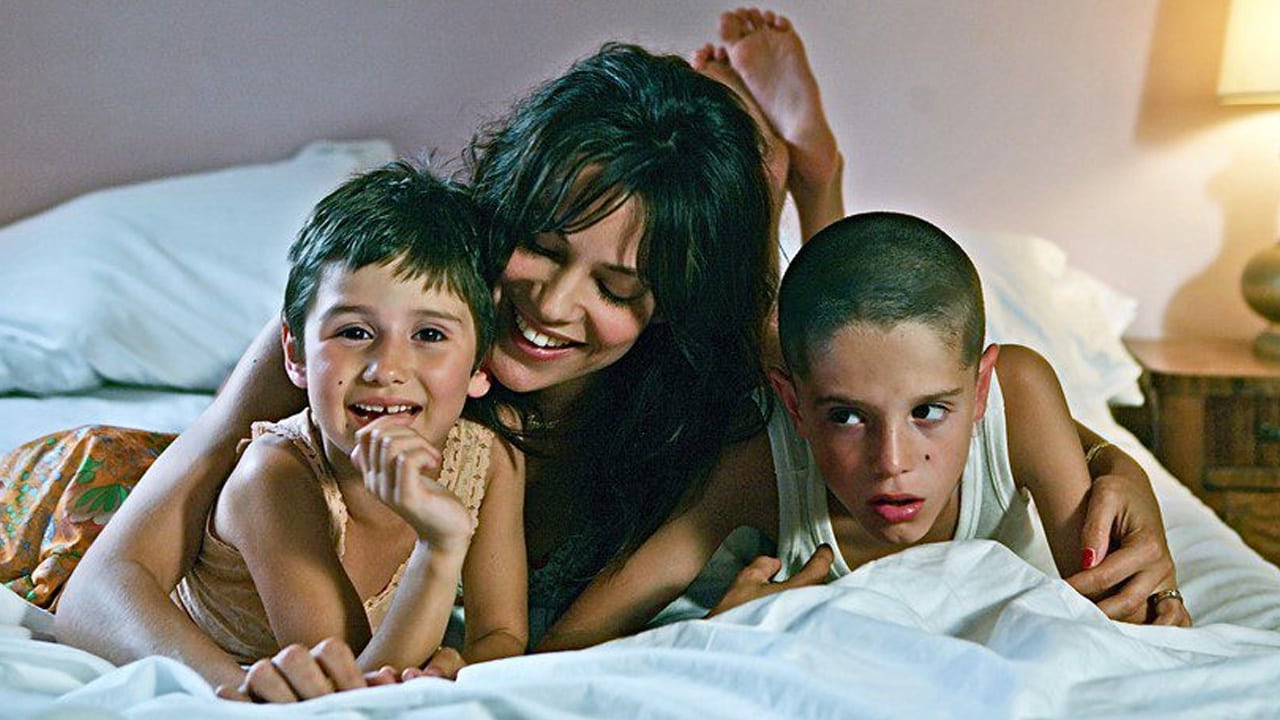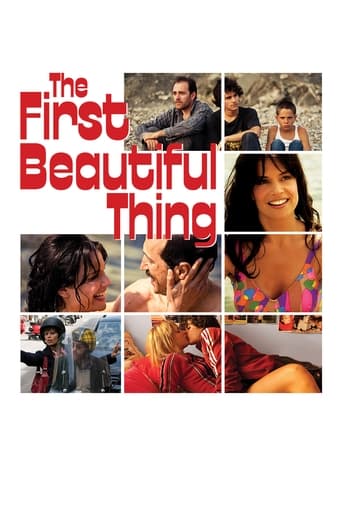GamerTab
That was an excellent one.
Infamousta
brilliant actors, brilliant editing
Ogosmith
Each character in this movie — down to the smallest one — is an individual rather than a type, prone to spontaneous changes of mood and sometimes amusing outbursts of pettiness or ill humor.
Teddie Blake
The movie turns out to be a little better than the average. Starting from a romantic formula often seen in the cinema, it ends in the most predictable (and somewhat bland) way.
jdesando
Although the golden age of Italian cinema probably stopped a couple of decades ago after a formidable run beginning with the neo-realist movement, Paolo Virzi's The First Beautiful Thing captures some of the realism and confusion of life in the 1970's through present day. Propelled by several sometimes confusing flashbacks, it still makes sense when it focuses on mother and son and a tempestuous, oedipal string of lasting impressions.Anna (Michella Ramazzotti) is a beautiful mother, wife, and local hottie who wins the Summer Mother Beauty Contest of 1971, setting off a series of jealousies (even her young son), and infidelities, as befitting the not quite stereotypical mother/whore motif. Son Bruno, played as an adult by Valerio Mastanrea, grows up to be a professor and a misanthropist whose recurring images of his chaotic mother disturb him and alienate him from his sister Valeria (Claudia Pandolfi) and his mother, played in her later years by Stephania Sandrelli.Bruno is more memorable than his mother because he is far more complicated, a drug addict who struggles to please his cancerous mother in her last days and reconcile with his sister. While Bruno's oedipal inclinations have not been overpowering, mother Anna has a couple of scenes where she treats him like a lover rather than a son. Regardless of those clues, it is not until they are permanently separated that he is free to swim with his girlfriend, seemingly washed of his mother and free to love.Compare this mother/whore story with the recent much more oblique I am Love or the more openly incestuous Murmur of the Heart, and you can see why it comes closer to telenovela than a classic, The Priest's Wife, in which Sophia Loren challenges a priest's vow of celibacy. Anna wrecks her children's lives, according to her son, but she has an aura of likability that begs the audience to care for her when she has mostly confused the lives of many men and children, too.Although the story lacks sophisticated dialogue and the plot is unnecessarily complex, the film is a moving treatise on the effects of absent mothers and estranged sons on family happiness.
johno-21
I recently saw this at the Palm Springs International Film Festival. This film picked up three prestigious Donatello Awards (Best Actress, Best Actor, Best Screenplay) in Italy and is that country's official submission to the 83rd Academy Awards Best Foreign Film category. The story begins in the 1971 when Anna (Michella Ramazzotti), the beautiful wife of Mario (Sergio Albelli) wins a local Mrs. beauty pageant. The jealous Mario eventually throws out Anna and their two children and so begins their journey throughout this film that leads to the present day where the older Anna (Stefania Sandrelli) is dying and her daughter Valeria (Claudia Pandolfi) coaxes her brother Bruno (Valerio Mastanrea), now a professor who has a drug problem and has become estranged from his mother and sister, to pay his last respects while Anna is still alive. Told in a series of flashbacks to the past interwoven very smartly with the present this is a clever film and story with lots of wit and charm and a great cast. Also stars Fabriza Sacchi as Sandra, Anna's estranged sister. Anna stole Sandra's boyfriend Mario and when Mario and Anna split he returned to Sandra. There are lots of interesting subplots and a great supporting cast including the young actors who play Bruno and Valeria in childhood and as teenagers. Paolo Virzi directs this film and his real-life wife Ramazzotti in a family friendly manner where violence and sex are implied and not gratuitous. Nicely shot by veteran cameraman Nicola Pecorini in his feature film debut as a cinematographer. Film veterans Production Designer Tonino Zera, Set Decorator Donato Tieppo and Costume Designer Gabriella Pescucci have a clever collective eye for detail in recreating the flashback scenes of the 1970's and blend them seamlessly with the look of present day with the help of Film Editor Simone Manetti. Writer/Director Virzi wrote the original story for film with the intention of making it seem like it was adapted from a novel help of co-screenwriters Francesco Bruni and Francesco Picolo. Virzi and Ramazzotti were on hand at my screening for a Q&A. I would give this an 8.5 out of 10 and recommend it.
Iwould
A beautiful and touching movie. The actors are really good - Pandolfi and Mastandrea deliver probably their best performance ever, while the common effort of Stefania Sandrelli and Micaela Rammazzotti depicts a wonderful, unforgettable female lead character, that somehow accomplish the not so easy task of being at the same time down-to-earth and larger-than-life. The story is full of grief and pain, and thanks to the overall great acting performance, those feelings seem so real that they will make you suffer (and cry). At the same time, anyway, the script is full of funny moments that will make you laugh, and laughs will wash away the tears – you know, just like in the real life. Strongly recommended to anybody.
Matt Kies
I live near director's town of birth, the town where this movie is set, too, and I had, last summer, the great opportunity to see how this man works, and I can say he's so nice and he tries to be calm, even when the actors (the younger ones, in particular) couldn't do that he wants.But I've noticed an other thing: production was very very rich (in economical terms), and maybe my judge could be partial, but when I've seen this movie, I've seen a beautiful story, rich of messages and themes (family, and the incapability to repudiate that; impossibility to escape from past and nostalgia; against the drug, even if it could seem the opposite etc..), so great job as regards the screenplay; acting is good, although many actors were very young, and "for first time on screen"; photograph is quite good (some scene have a big and quite bad using of color correction), and sounds are right.I think (joking) Virzì is happy whenever he reaches to export his accent in the world, and his own crusade includes, in my opinion, the justice for the speaking, which before him it was the same for Florence and Tuscany's Coast. In this way, actors like Mastrandrea and Pandolfi show their great capability to give a great interpretation even with a different accent (both come from Rome).But the worst side of the movie I think it's the shoots. They aren't bad, but probably I believed Virzì's work had a greater attention for originality, and I asked me why, with the big quantity of entourage and money he had, he forgot the attention for the originality in shooting. The shoots are many times ordinary, far from other great movies, like Fellini's Amarcord, which the review Ciak had compared with this.With an other kind of shoots (or maybe is just the video editing, I hope) which gives to movie that "ordinary taste", breaking a little part of amazing magic of the movie, this could be one of the greatest works of Virzì, because is a personal and introspective work, like Italians know to do very well.Although this, "La Prima Cosa Bella" is able to move the spectator, and it's a good movie, but just a little better than the standard of the genre. My final vote is a 7,5.

